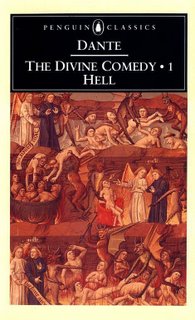 As argued in lecture, there was no cause to the First World War. The popular factoid that the death of a minor (though pleasant and competant) European royal in a dour Balkan capital caused the West to immolate itself in four years of a Dantean Inferno in French ditches is not false but merely silly on its face.
As argued in lecture, there was no cause to the First World War. The popular factoid that the death of a minor (though pleasant and competant) European royal in a dour Balkan capital caused the West to immolate itself in four years of a Dantean Inferno in French ditches is not false but merely silly on its face.Attributing a cause to the War is not an empirical or academical problem, but a historical-conceptual failure to use the term "cause" properly.
Before the putative Enlightenment, it was understood that there are four causes, delineated by Aristotle in his Physics, that together explain an event.
- Material cause: the physical properties involved.
- Formal cause: the aggregate of underlying properties which amount to its unique identity.
- Efficient cause: the initial motion or action which began the event.
- Final cause: the event's function or purpose -- its end.)
Take a simple illustrative example. I am about to pot the black in a game of snooker. Thwack! It's in; I win yet again. Material cause is the solid constrution of the table, balls, &c.: if the cue ball were tissue and the black jello, the event (the potting of the black) would not take place. Formal cause is the rules of billiards, the shape of the table, cue, rack, and all the other contributing elements that shape and frame -- i.e. that form -- the event. Efficient cause, of course, is the mechanics behind the cue hitting the cue ball. And final cause is Stephen Ogden winning the match and having his universal supremacy at billiards re-affirmed for posterity . Or something like that.
Applying, then, the robust pre-Enlightenment concept of causation to the problem of how and why the First World War began we see at once its great explanatory power as well as the relative feebleness of the Englightenment's shrunken understanding of "cause". The killing of Archduke Franz Ferdinand by an inept Bosnian terrorist is efficient cause of the First World War: and a good efficient cause it is. But being stuck in Englightenment-Cause thinking has trapped the generations of post-War scholars in an impossible search for more, or for bigger, or for better efficient causes: impossible, because no efficient cause and no amount or quality of efficient causes can ever fully explain an event. Now, of course, if the event should happen to be small enough, and if the mind contemplating the case be sufficiently bereft of imagination (or, it might be said, of rigour), then an efficient cause can seem adequate. But events on a large or more significant scale reveal the impotence of the Enlightenment-Cause model.
Material cause of the War includes 1914 Europe's demographics, military technology & ordnance, national-geographical, and perhaps the crossover network of treaties in effect. Its formal cause can be summed up as the ethnic, cultural and political histories of the nations and Empires involved. And final cause is ..... well, final cause is for each historian, historiographer and theologian to decide and to argue individually.
Ford Madox Ford in Parade's End puts one conviction of WWI's final cause -- the Tories' -- into the mouth of the protagonist Christopher Tietjens; and that would be the altruism of England. Tietjens is Ford's literary manifestation of Tory England, so when it is said of him that "....it is, in fact, asking for trouble if you are more altruist than the society that surrounds you," [Penguin, 207] it is actually England that has asked for trouble (and will, in fact, be smashed -- insofar as its Tory character is concerned) by entering the War altruistically to defend the "surrounding" societies of the Belgians and the French primarily for the sake of (to Madox Ford, cricket-inspired) Duty.
[Tietjens'] mind was at rest because there was going to be a war. From the first moment of his reading the paragraph about the assassination of Archduke Franz Ferdinand he had known that, calmly and with assurance. Had he imagined that this country would come in he would not have known a mind at rest. He loved this country for the run of the hills, the shape of its elm trees and the way the heather, running uphill to the skyline, meets the blue of the heavens. War for this country could only mean humiliation, spreading under the sunlight, an almost invisible pall over the elms, the hills, the heather, like the vapour that spread from .... oh, Middlesbrough! .... But of war for us [i.e. Britain] he had no fear. He saw our Ministry sitting tight till the opportune moment, and then grabbing a French channel port or a few German colonies as the price of neutrality.
You each will, I trust, be able to advance your own final cause of the War with our course under your belt ....
And to conclude, there was indeed no "cause" for the First World War: but there were, as for everything, four causes.
Update: Click this link for a typical school history attempting to explain the First World War in terms limited to efficient causes. It is actually a fairly sophisticated attempt of its type, differentiating as it does between "long term" and "short term" [efficient] causes.

No comments:
Post a Comment